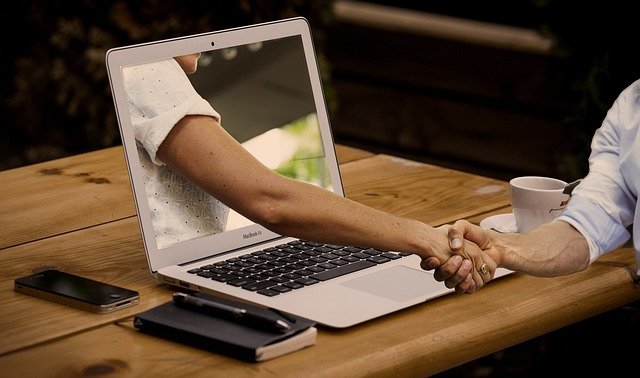
Today’s daters have many more romantic options than our forefathers could have dreamed. The sheer number of singles on the internet is astounding. And, as more women enter and succeed in the workforce (although, in my opinion, we are still far from where we need to be), the average marriage age is higher than it has ever been, and more people are choosing not to marry. With the rise in polyamory, many people are opting to date outside of committed relationships.
In summary, there are plenty of opportunities and singles. Isn’t that supposed to make dating easier? No, not at all. In practice, the seemingly infinite number of choices can lead to a paralysis known as the “paradox of choice.” Why put your money into one individual when there’s someone better just three swipes away? Why stay with your date if they show you a side of themselves you don’t like, or if a disagreement arises, when you might go on to a new, unblemished page with someone else and save the discomfort and work?
This paradox of choice, I believe, also impacts how we present ourselves on dates and our willingness to form a connection with someone. Many people in today’s dating society take the “shopper approach,” which implies that connection is something you either have or don’t have with someone. While it’s true that some people will have more instantaneous chemistry with you than others, a connection is something you and that other establish together by choosing to invest in learning about each other, purposefully creating rapport and trust, and sharing experiences.
To put it another way, connection is something you can have with someone when you both decide to care. So, if you can define what a connection is and how to make one, you can take responsibility for making better dating relationships on your own. These are talents that I help my clients develop.
Everyone has a flaky personality.
Another common complaint I hear is a lack of accountability and follow-through. We’ve developed the term “ghosting” to describe when someone disappears and ceases contact and communication without providing an explanation. The paradox of choice is undoubtedly at work here, but I believe there’s another factor at play when it comes to flakiness, lack of follow-through, and “ghosting”: the lack of social accountability.
Online dating is a fantastic way to bring individuals together who would not have met otherwise, frequently from different social networks and ways of life. Personally, I find this to be quite interesting and fascinating. However, without friends, community, or a shared context, there is no one to hold anyone accountable for high-integrity communication, behavior, and treatment. Another way that the mechanisms of modern dating allow for the avoidance of discomfort and personal accountability is in this way. The irony is that by avoiding personal suffering, we contribute to a broader societal distress, a generalized loss of morale, and a circle of ghosts ghosting
It is up to you to hold yourself accountable for communicating, acting, and treating others with great integrity. You may not be able to influence what other people do or how they make decisions, but you can influence your own behavior in a way that attracts those who value accountability and repels those who don’t. Goodbye, old friend!
So much gets lost in digital translation
People’s preferred digital communication strategies differ substantially. Some folks enjoy making phone calls. Some folks prefer to text rather than talk. Some folks will respond almost immediately. If the situation isn’t urgent, others will respond days later. Some people use a lot of punctuation and emoticons in their messages. Others write run-on sentences that drive an English major like me insane.
Our digital communication preferences are cultural, generational, and personal. It’s easy to mistake someone’s tone, message, or intention online because there’s so much variation in digital communication style and so many channels to communicate through. Because of digital miscommunications, many promising relationships that could have been wonderful fall apart.
The solution is to be open about the manner and frequency with which you prefer to connect digitally, to question your own negative readings of messages and posts, and to schedule critical conversations in person or over the phone.
To my clients, I advise them to remember that a digital connection is not the same as a real-life relationship, to be cautious about how often they communicate digitally with a new flame, and to use text only for logistics and light banter. I would rather make a phone call or record a voice memo than send a long text message. But, of course, that is a matter of personal taste.
Social media puts far too much pressure on people.
The world of social media, which is based on digital communication, has its own nuanced language and offers a plethora of romantic smoke signals, indicators of interest, faux pas, passive-aggressive and not-so-passive-aggressive digs to subtly communicate with your crush in the hopes that they will get your message. And sometimes in the hopes that they won’t get what you’re saying and will be so curious that they’ll text you to find out.
For someone you’re interested in, someone you’re starting to date, and someone you’re in a relationship with, there are different norms of conduct. What’s more, surprise! Nobody knows exactly what these codes of conduct are. When are you going to post your new “boo thing” on Instagram? Who gets into whom’s DMs? What does it imply when someone “deep likes” one of your photos (a photo you’ve already posted)? Is it okay if your guy loves his ex-Instagram girlfriend’s postings and follows gorgeous models? Do you unfriend and unfollow each other when you split up with someone? Do you and your partner talk about how you want to present yourselves on social media as a couple when you first start dating?
Social media, like online dating, is a tool for connecting, and you get to choose how and if you use it (and for a primer, check out my Guide to Instagram Dating). Everyone uses social media differently, just like everyone uses digital communication in general, and you never know if someone’s “thirst trap” (an attractive photo posted to beg attention and advances) is meant to draw your eye in particular.
To put it another way, the only thing you really need to know is that attention is the most valuable commodity on the Internet. It’s likely that someone is interested in you if they pay you a lot of attention on social media. And if you want to show someone you care about them, pay attention to their social media accounts and “like” their posts.
Nobody meets today in a ‘organic’ way.
Despite the fact that most couples still meet in person, I’ve noticed a widespread perception that no one meets in person anymore. A lot of this belief, in my opinion, is hype. However, it is true that online dating eliminates the risk of face-to-face rejection, and many people prefer to hide behind their phones while expressing their interest.
What interests me here is another assumption that underpins the faulty mechanics of modern dating: the definition of “organically meeting.” When I probed deeper, I learned that many individuals use the term “organic” to denote some magical and seamless, instantaneous link. They’re waiting in line at the coffee shop to meet someone when their hands brush against one other as they reach for the final quiche, sending an electrifying shock of recognition through their bodies.
What we forget is that any encounter that appears to be “organic” is actually engineered on a micro level. If you encounter someone on the street, in a bar, at a party, or at a conference, at least one of you must risk the discomfort of possible rejection by striking up a conversation. What we forget is that one individual may have grabbed for the quiche on purpose after seeing the other reach for it. What we forget is that even if both participants were reaching for the same quiche by accident, they both had to take micro risks to make a joke that draws the other person into a conversation, or to ask for the other person’s contact information. You can’t meet someone “organically” without being uncomfortable, no matter how minor the danger.
Ones who go to the grocery store, wander the streets, and frequent venues are the same people who lament that no one meets “organically” anymore. How refreshing would it be if you were the one to take a tiny risk and construct a “organic” introduction for someone?




